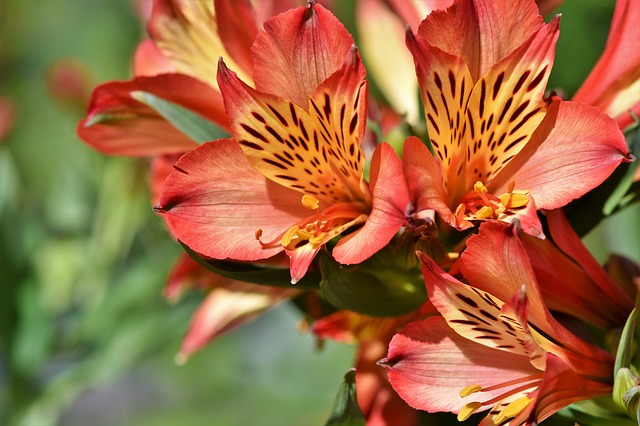
A garden can provide far more than just decorative appeal. It isn’t only a pastime for hobbyists with a green thumb. It can give a gardener a feeling of peace. The effects can be especially profound if gardening is something you excel at.
You must gradually introduce your plants to changing conditions and temperatures, so you do not shock them. Leave them outside in sunlight for a couple of hours on the initial day. Throughout the week, you should leave your plants out for a little longer each day. After a few more days, your plants will be more resistant and ready to stay outside all the time.
Try planting seeds in pots, and then transferring the seedlings to your garden. This raises the chances of the plants growing until adulthood. This method also reduces the waiting time between plantings. After you remove the mature plants from your garden, you can immediately replace them with the seedlings and start the cycle over again.
Slug-proof your garden with smart perennial choices. A particularly vulnerable plant can be killed by snails and slugs overnight. Young plants with susceptible leaves are favorite meals for slugs, including those with smoother or thinner leaves. Slugs and snails will leave some perennials alone, particularly those with a bad taste or tough, hairy leaves. Consider planting these varieties of perennials to discourage slugs and snails from eating your flowers. Euphorbia and achillea are examples of slug-proof perennials.
The first thing you can do to ward off garden pests is to ensure you are using healthy soil in your garden. Healthy plants grown in robust and enriched soil have an advantage in fighting pest infestation. Healthy, rich soil with fewer chemicals will increase the yield of your plants, and reduce accumulated salts.
Start a new garden from seeds. When you begin a garden, it’s most eco friendly to do so with seed. The problem is those plastic trays which end up in landfills and are not generally recycled. Plants in organic packagingn or seeds sown in your garden, are fine .
There are several all-natural ways to keep pests out of your garden, including certain plants. Plant marigolds or onions around other vegetables to keep slugs away from them. Mulch around the bottom of trees and shrub seedlings with wood ash to reduce unwanted infestation of pests. Natural materials and plants can be just as effective as chemical pesticides at keeping unwanted visitors out of your garden!
Novice gardeners should read the manuals on all horticulture tools and chemicals prior to using them. Failure to follow instructions can be dangerous or painful. For example, some chemicals will irritate your skin if you don’t follow safety rules. Ensure that your body is protected by always following instructions.
Your garden can really benefit from evergreens featuring berries. These help to give your garden nice looking color, even during winter when most vegetation is colorless. These plants come in several different varieties, including the Winterberry, American Holly, Cranberrybush, and Common Snowberry.
If you want the best tasting vegetables, learn about the optimum time to harvest them. For the optimum flavor, be sure to follow the guidelines for planting and picking. For instance, zucchini and baby peas have the best taste when you pick them early. However, tomatoes should be as ripe as they can be when pulled from the vine to ensure the best taste. Find out what the best harvest time is for your vegetables.
Use the information from this article to bring your garden to life. When your plants bloom and come alive you will feel tremendous joy and satisfaction. Gardening may change your life if you let it, now get started.